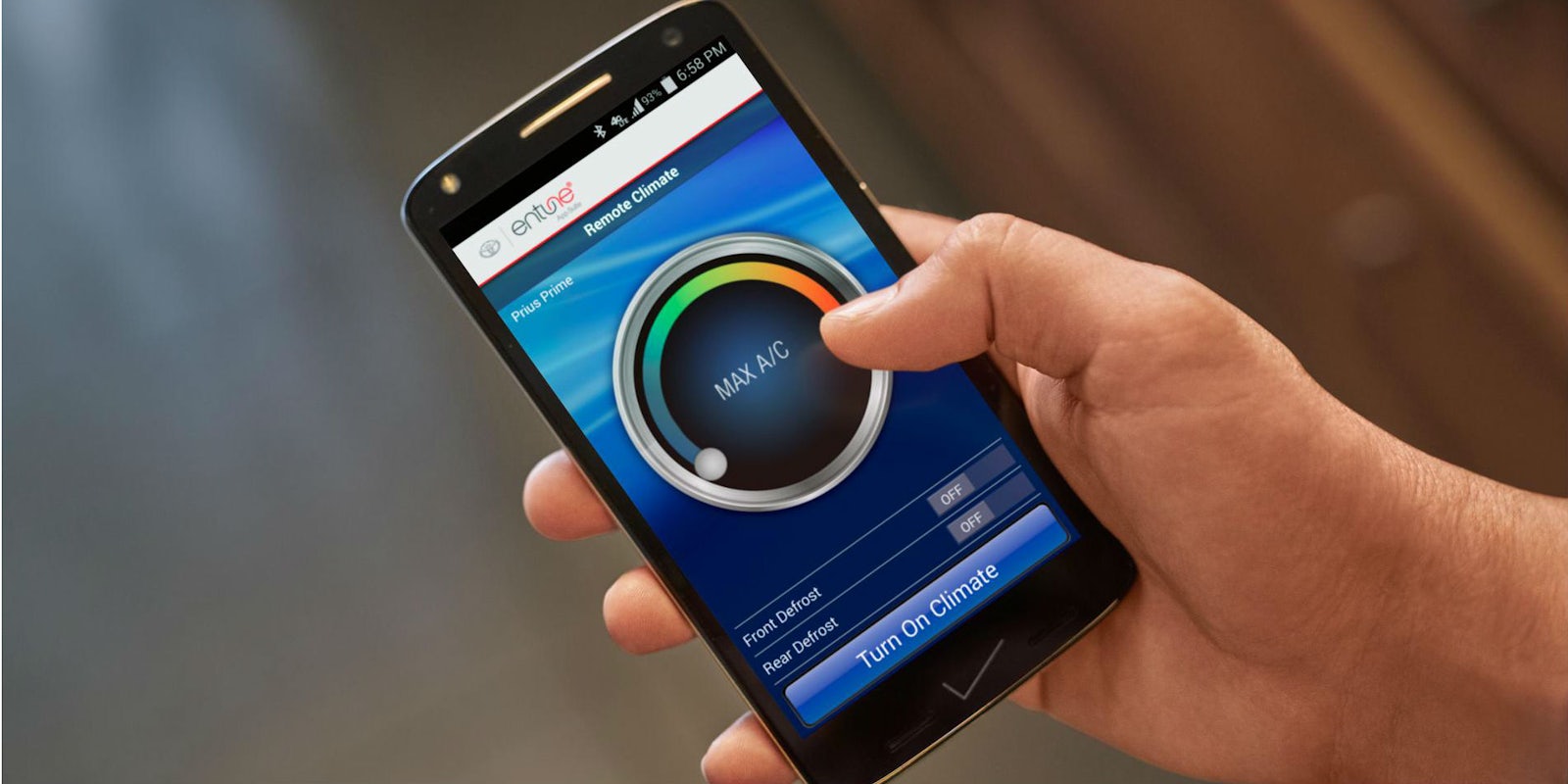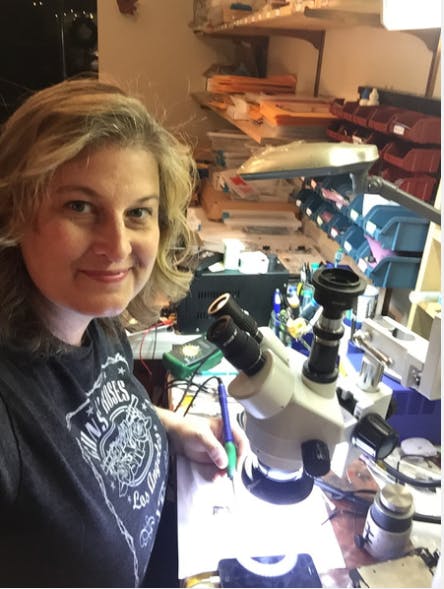PRESENTED BY TOYOTA PRIUS PRIME
Inspired by the remarkable innovation and intelligent eco-technology behind the all-new 2017 Prius Prime—an exceptionally balanced plug-in hybrid that’s better for all, starting with you—Toyota has partnered with the Daily Dot to spotlight creators and tinkerers who are influencing the world around them in meaningful ways. Here, we offer a closer look at a gadget guru whose boutique repair shop focuses not just on the products we own but the people who depend on them.
Home repair is obvious. If the lightbulb’s out, replace it. If the floor’s dirty, you can mop it. If the door hinge is squeaky, go and get some WD-40. And if the toilet’s clogged, drag it out front of your house and take a sledgehammer to the porcelain.
The last of those is how Jessa Jones made her way into her business. She was at her home in Mendon, New York, when one of her kids clogged the family toilet with an iPhone. (Whoops!) When a plunger wouldn’t free it, she turned off the water, unscrewed the loo, and dragged the toilet out the door. A few whacks with a sledgehammer later and she found her phone; it was lodged in the P trap under the bowl.
Jones picked the phone off the ground, took it inside, and dried it. She got it on again; the phone worked fine—touchscreen, sounds, and images and all. But when she plugged it in, she got no charge. That’s when she got into micro-soldering. She got some hot tweezers and a micro pencil and went to work. Shortly after that, her iPhone was charging up and functioning like brand new again.
Micro-soldering, the process by which electrical repairs on small appliances like iPhones or laptops is often carried out, is founded on an industrial language that appears foreign to many people. It’s an industry built on microchips and processors, filters, transistors, SIM trays, and resonance capacitors. And Jones, who holds a bachelor’s degree in molecular biology and a Ph.D. in human genetics (she once taught biology at New York University), is an industry star— most highly regarded, perhaps, for shedding light on a touchscreen design flaw that has caused thousands of iPhone 6 Pluses to shut down during normal use.
The mother of four started her business, iPad Rehab, as a dining room sideshow and has since expanded it into an at-home shop, with more than $50,000 worth of equipment and a full staff of other moms plugging away.
“The stay-at-home-mom community is huge and full of talent,” she once told ifixit.org. “Everybody would like to have some way to make some money that allows them to be flexible and lets them use their brains. And there’s really no reason that repair can’t do that. Women, in particular, are fantastic at repair of tiny devices.”
Jones says on workdays she’ll often spend 12 to 18 hours replacing battery connectors and sockets, troubleshooting backlight problems, and figuring out board-level problems like busted touchscreens or audio extensions. She loves looking into a microscope and tweaking her hot tweezers and micro pencil just enough to save a bit of data lost in a waterlogged iPhone. On her website, she’s fostered a community of micro-solderers who’ve found new ways to look at modern technology devices and has helped inject new energy into a more do-it-yourself method of tech repair. She’s called mom-and-pop shops the “great hope” for the repair industry because they’re predicated on people in charge who are invested in what they’re fixing—and who they’re fixing each phone for.
“I call this ‘boutique repair,’” she said of her shop in a 2016 Reddit AMA. “I almost always say ‘come on around back’ and show people their phone under the microscope and spend time teaching them about how phones work and common problems. Everyone wants to see the inside of their phone.”



